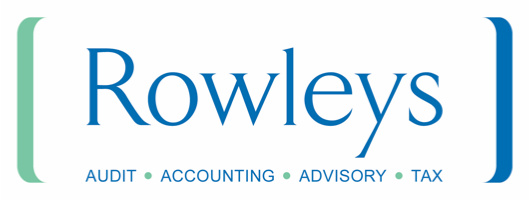News & Events
Rising inheritance tax liabilities: Steps to take to minimise the burden
16th June 2023
Recent research conducted by interactive investor revealed that the UK’s average Inheritance Tax (IHT) liability has surged to £62,000, placing an additional burden on families. This alarming figure highlights the need for individuals to explore effective strategies to minimise their IHT obligations. Rebecca Scotton, Senior Tax Manager at Rowleys, explains more about the research and what techniques can be used to reduce IHT liabilities.
Frozen nil-rate band
IHT is a tax levied on the assets of an individual’s estate upon their death. The nil-rate band serves as the threshold, determining the amount of an estate that is exempt from IHT. This is currently set at £325,000. Anything above this threshold is typically subject to a 40% tax rate. However, despite the rising value of assets, the nil-rate band has remained unchanged for over a decade and is set to remain frozen until at least April 2028, significantly impacting families’ financial planning.
Over the past 14 years, the UK has experienced substantial growth in house prices, investments, and savings. These assets play a crucial role in calculating IHT liability. Consequently, individuals with modest estates are now finding themselves liable for IHT, which was initially designed to affect only the wealthiest segments of society. The frozen nil-rate band fails to account for the natural progression of asset values over time, burdening families who may not have anticipated these changes.
The government introduced a ‘top up’ to the nil-rate band in April 2017, providing additional relief in certain circumstances where a family home passes to direct descendants. However, the restrictive application of this allowance means that HMRC’s IHT receipts continue to rise.
Reducing IHT liability
Fortunately, several legitimate methods are available to reduce IHT liability and potentially alleviate the financial burden on families. By making use of various financial planning strategies, individuals can navigate the complex landscape of IHT and safeguard their wealth. Below are some effective techniques that can be employed:
- Gifting allowances
Gifting can be an effective way to reduce IHT liability. Individuals can gift assets to their loved ones during their lifetime, taking advantage of the various gifting allowances. The value of such gifts falls outside an individual’s estate immediately. Additionally, gifts made outside the specific allowances are generally exempt from IHT provided the person making the gift survives for seven years after the gift is made. Proper planning and understanding of gifting rules are essential to maximise this strategy.
- Trusts
Establishing trusts can provide significant IHT advantages. Trusts allow individuals to transfer assets while retaining control over them and determining how they will be distributed. Certain types of trusts, such as discretionary trusts, can be particularly useful in minimising IHT liability, although professional advice should be sought to ensure compliance with legal requirements.
- Pensions
Pensions are typically free from IHT. Maximising pension contributions and utilising pension planning can help reduce the overall IHT liability. By reviewing pension arrangements and utilising available tax allowances, individuals can optimise their pension funds and provide a tax-efficient method of wealth transfer.
Given the complexities surrounding IHT, consulting a qualified adviser is crucial for individuals who wish to understand the value of their estate and assess their potential IHT liability.
Please get in touch if you’d like one of our IHT experts to review your IHT position, evaluate the impact of the frozen nil-rate band, and provide personalised recommendations for mitigating IHT liability.
